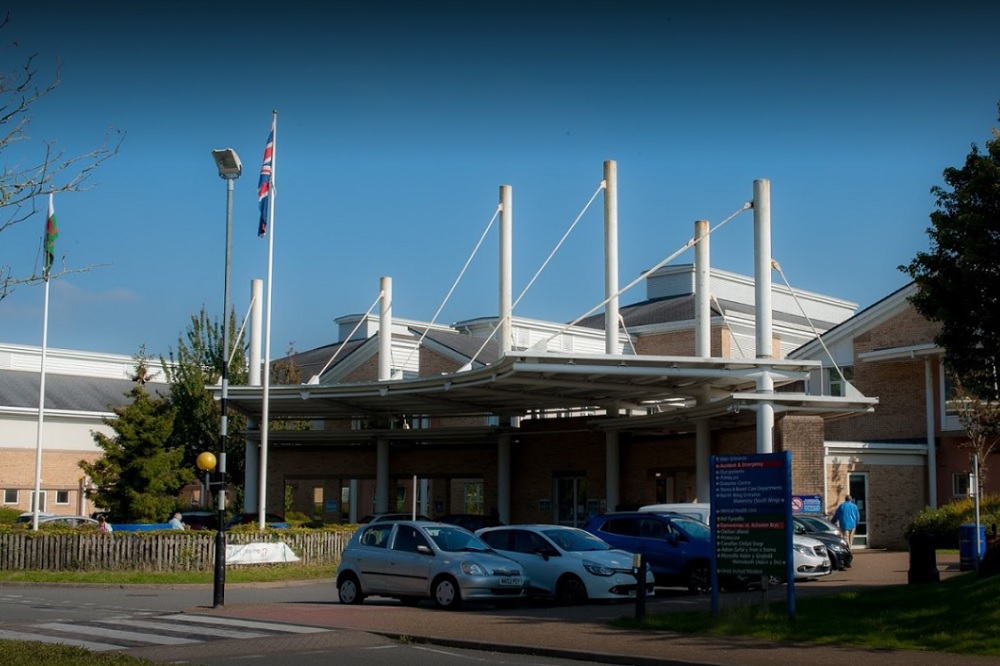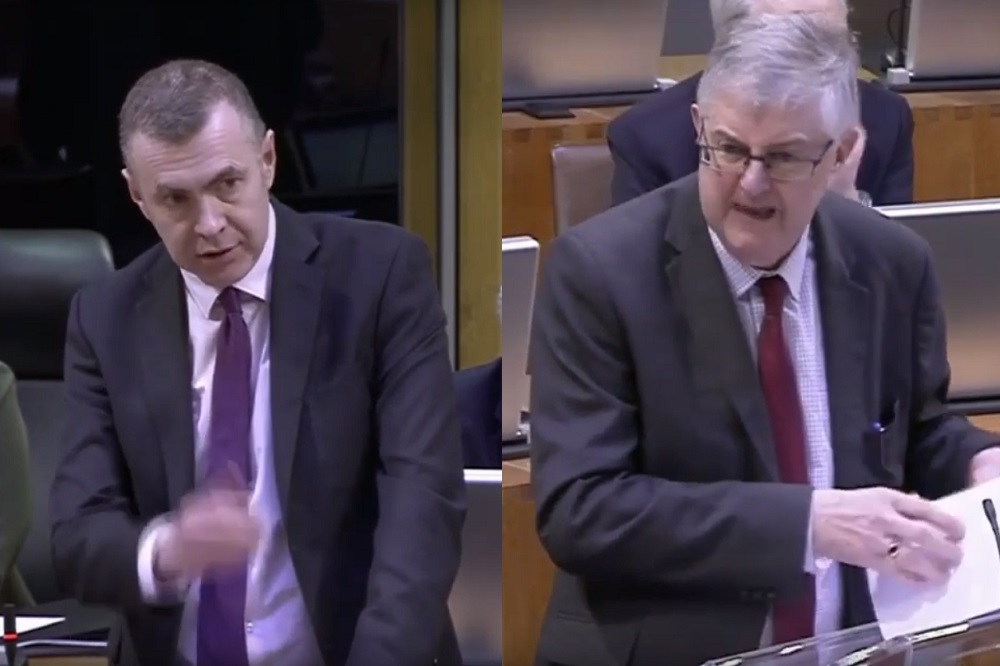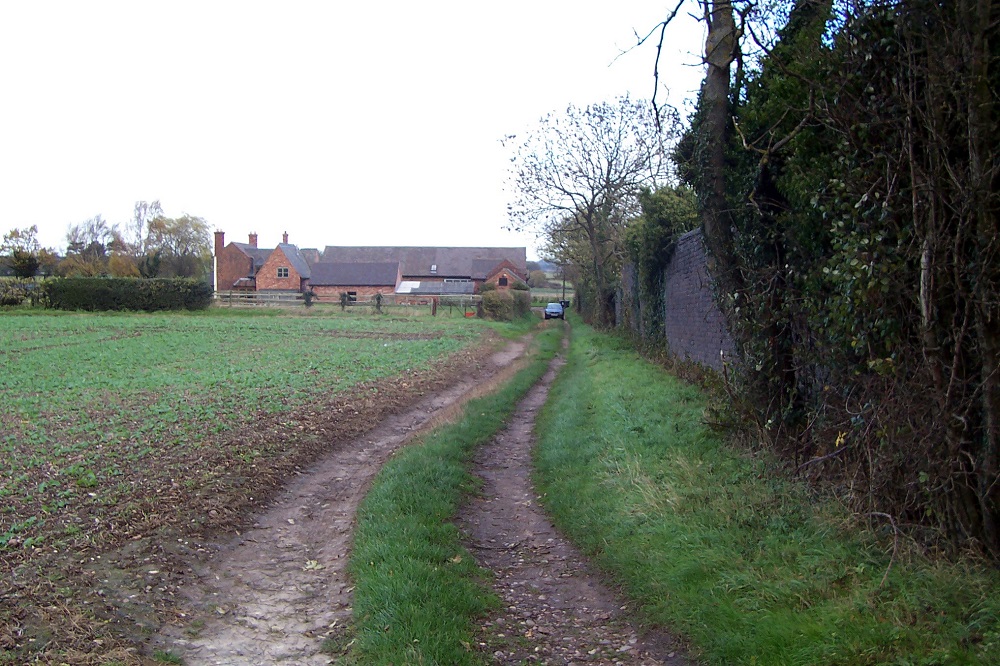Senedd roundup: 30 new deaths confirmed in Cwm Taf Morgannwg hospital outbreak

Owen Donovan, Senedd Home
Cwm Taf Morgannwg health board has reported 30 new deaths linked to a Covid-19 outbreak in four of its hospitals.
The total number of deaths since the outbreak was declared last month is now 99 with 51 of those at the Royal Glamorgan Hospital.
20 deaths have also been reported at Prince Charles Hospital, Merthyr Tydfil, 22 at Princess of Wales Hospital, Bridgend and 6 at Maesteg Hospital.
469 cases of the virus have been linked to outbreaks at the health board so far.
Dr Andrew Goodall, the Chief Executive of NHS Wales also confirmed there were nearly 200 cases of hospital-acquired coronavirus in recorded Wales in the last week.
Speaking at Tuesday’s government briefing he said: “I want to be clear this is not as simple as a failure of hand-washing or poor infection control procedures.”
“This virus is highly infectious and it can be passed on in the asymptomatic, pre-symptomatic and symptomatic phases of the infection.
“It is incredibly difficult to prevent its spread in busy healthcare environments, especially with around 90 people with Covid currently admitted each day.”
Dr Goodall also revealed there are currently 1,275 Covid-related patients in hospital in Wales, only 9% lower than at the peak of the first wave of the pandemic in April and 57 people are currently being treated in critical care for coronavirus, 12% higher than last week,
Responding to Dr Goodall’s comments Plaid Cymru Shadow Health Minister Rhun ap Iorwerth MS said: “If we were ever in doubt about the severe strain Wales’ health service is under as a result of the pandemic, today is another wake-up call. After the emerging of the seven-fold increase in waiting lists, and a Macmillan report showing deeply concerning backlogs to cancer services, we now find out that nearly 200 patients have contracted Coronavirus in our hospitals in the last week.
“People must have confidence that Government is doing all it can to urgently provide ‘Green’ Covid-free, or ‘Covid-light’ sites for diagnosis and treatment. And given how quickly the virus can spread when it gets into health and care settings, they must have confidence also in steps taken to keep the virus out in the first place. I don’t want people who may need treatment deciding to stay away, shoring up more serious problems for themselves and the health service.”
Four more people have died with coronavirus in Wales in the last 24 hours and there have been 1,119 new cases of the virus according to the latest figures from Public Health Wales.
Rhondda Cynon Taf (200) reported the most new infections since yesterday, followed by Cardiff (129) Swansea (103) and Caerphilly with 76.
Merthyr Tydfil has the highest infection rate in Wales at 692.9 per 100,000 people over the past week with Blaenau Gwent in second place with 525.3 cases per 100,000.
Merthyr also has the highest proportion of positive tests in Wales at 30.7% per 100,000 tests.

Drakeford pledges to make positive case for the United Kingdom
First Minister’s Questions
Given the recent surge in membership of the pro-independence pressure group, Yes Cymru, Adam Price MS (Plaid, Carms. E. & Dinefwr) questioned why the First Minister was so adamant that if Wales were independent there wouldn’t be an equivalent furlough scheme?
“Switzerland, Norway and Denmark, Latvia, Estonia, Ireland and even Luxembourg….are all funding wage subsidy schemes equivalent to furlough…so why would an independent Wales be any different….If Wales was an independent country, we would have our own fully-functioning Treasury and central bank, meaning we could do what every other country in the world is doing at the moment to meet the cost of the pandemic, which is borrowing on the capital markets and using quantitative easing.”
– Adam Price MS
The First Minister likened the UK to an insurance scheme – Wales pays in taxes and has taken out of the “policy” when it suits our needs.
He went on to say that it was down to Plaid Cymru to make the case for independence, but he would continue to make a positive case for the United Kingdom, drawing on a wider pool of resources. We need to share the risks and also share in the rewards. He didn’t want Wales to leave the EU and doesn’t want Wales to leave the UK either.
Support to businesses during the firebreak “on a first-come, first-served basis”
Steering away from debating the actual principle of a lockdown, Leader of the Opposition, Paul Davies MS (Con, Preseli Pembs.), turned to business support offered during the current “firebreak”.
Many businesses have been under lockdown restrictions for several weeks (once local lockdowns are included), but support has been offered on a “first come, first served” basis rather than actual need. Even now, hospitality businesses remain in limbo over how they’ll operate under the recently-announced all-Wales measures to be introduced next week.
Repeating the claim that the Welsh Government’s business support package was the most generous in the UK, the First Minister would always like to do more. Further clarification on how the new national measures affect the hospitality sector was due later this afternoon.
Businesses still have to apply for support, but as long as they’re on the list for business rates they should get it:
“Let us be clear: properties will automatically qualify for help from that aspect of the fund that deals with people who are on the non-domestic rates rating for their local authorities. Of course, they have to apply for it; we’re not in the business of offering help to businesses who don’t want it. But all they have to do is demonstrate they were on the non-domestic rates rating list and they will get that help automatically.”
– First Minister, Mark Drakeford (Lab, Cardiff West)

Welsh Government fiscal response to Covid-19 will increase to over £5 billion this year
The Welsh Government has over £5 billion to allocate to its Covid-19 fiscal response in 2020-21, according to a new briefing paper from Cardiff University’s Wales Governance Centre.
However, a lack of funding certainty and borrowing powers is hampering effective planning of support for Welsh businesses and public services.
The report, ‘Funding the firebreak and beyond’, from the Wales Fiscal Analysis team reveals the costs of Covid-19 related business support and public health interventions, as well as assessing the huge budget uncertainties facing the Welsh Government.
The £5 billion of available funding comprises £4.4 billion triggered by UK Government spending decisions in England (Barnett consequentials) as well as reprioritised funding from within the existing Welsh budget.
After already-allocated support for businesses, public services and local authorities, the Welsh Government’s recent Supplementary Budget included £1.2 billion of unallocated funding. This funding will allow the Welsh Government to provide more economic support over coming months.
However, the unallocated spending also reflects huge uncertainties surrounding budget planning this year, amplified by a lack of borrowing powers, inflexible funding arrangements, as well as a lack of clarity on the costs of UK Government support for businesses in England.
Guto Ifan, Wales Fiscal Analysis researcher, commented: “The UK Government has made open-ended commitments to businesses in England, dependent on future economic restrictions, making the eventual additional funding this will trigger for the Welsh Government highly uncertain.
“Without more flexibility in funding arrangements from the Treasury, or current borrowing powers of its own, the Welsh Government may be unable to make similar ‘whatever it takes’ commitments to businesses here in Wales.”
To date, the report also finds no evidence that the Welsh Government’s public health interventions have led to greater levels of UK Government Covid-19 spending in Wales, and the earlier Welsh ‘firebreak’ lockdown will likely be proven to be cost-effective.
Guto Ifan added: “Although the lockdown may have increased demands on the UK Government’s furlough scheme, it will have mitigated the need for costlier and longer-lasting restrictions at a later point, as we now see in England.
“Over coming months, the UK Government’s economic support policies should accommodate the devolved governments’ decision-making too, and not only the restrictions put in place in England.”

Taskforce recommends councils prioritise unadopted roads in most need of repair
After more than two years, the final recommendations of a special task force set up to investigate unadopted roads have been published (pdf).
The work was triggered following a backbench members debate in the Senedd held in February
The debate was held following growing criticism of developers not laying roads to the minimum standards required for local authorities to “adopt” them (take on responsibility for upkeep). Other classes of unadopted roads include back alleys, privately-owned and managed roads, farm tracks and other minor roads.
The report recommends that local authorities identify unadopted roads in most need of bringing up to the required standard and also to estimate the costs.
The report also recommends a pilot funding programme to address local unadopted road priorities and the proper monitoring of whether who’ve signed up to a good practice guide are sticking to it.
It’s been estimated the cost of bringing all unadopted roads in Wales serving five or more properties up to the minimum standard would be £1.56 billion (based on a price of £600-per-metre).

Poultry farmers and bird keepers warned to be on guard for avian flu as warning level increased
While humans deal with the Covid-19 pandemic, the Welsh Government has raised the warning level for avian flu to “medium”.
The Chief Veterinary Offices of the UK’s nations agreed to raise the warning level because of confirmed cases in swans in the Netherlands. There are fears that birds migrating westwards for the winter will carry avian flu with them.
The measures recommended to poultry farmers and other bird keepers include:
Keeping areas (where birds are kept) clean, controlling rodents and regularly disinfecting surfaces and footwear.
Protecting feed and water from wild birds and limiting access to outdoor water sources which may be used by wild birds.
Avoid keeping ducks and geese with other poultry species.
The UK was declared avian flu-free in 2017 and has maintained that status ever since barring a brief outbreak at the end of 2019, which was brought under control.
Support our Nation today
For the price of a cup of coffee a month you can help us create an independent, not-for-profit, national news service for the people of Wales, by the people of Wales.





